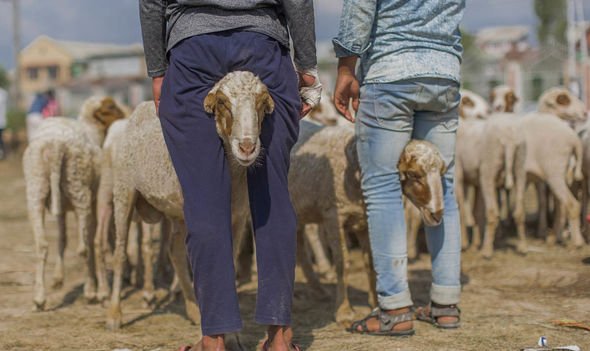Eid-Al-Adha is an Islamic festival that commemorates the willingness of Ibrahim to sacrifice his son to God. After the prayers, many Muslims symbolically sacrifice an animal (cow/goat/sheep) and this sacrifice is called Qurbani.
What does the Indian law state?
The law prohibits public slaughtering of animals in the name of, or, during religious sacrifices.
- The Prevention of Cruelty to Animals Act (1960), prohibits the public slaughter of animals
- Rule 3, PCA (Slaughterhouse) Rules, 2001 and the Chapter 4 of Food Safety and Standards Regulations, 2011 clearly call out that no animals (including sick, pregnant animals and chicken) can be slaughtered in a place other than the approved slaughterhouse
- The PCA (Slaughterhouse) Rules, 2001 further covers the entire gamut of slaughtering and details the age, physical condition (sickness, pregnancy, offspring …) etc of the animals and the place where they can be slaughtered
- It further clarifies that the slaughtering should take into account the local population’s requirement and then determine how many animals can be slaughtered
The ground reality
There’s a total disconnect between the law and the practices in reality.
- Apart from the government-designated places, animals are also slaughtered in houses, residential complexes/societies, and in some places, it is done on the public roads too, much to the dismay of other residents/passers-by.
- Hygiene is a major concern here, not to say the dismay/discomfort the sight of meat and blood all over the roads create in the minds of the common public.
A police officer opined that it is practically impossible to implement the PCA rules on special occasions because the numbers involved are simply overwhelming.
On special occasions like Eid-Al-Adha, the demand for meat is very high and the slaughterhouses can’t just meet the numbers, hence the public resort to slaughtering animals in their own neighborhoods.
“We instead … make arrangements for disposal of animal waste, which is more important to stop the spread of diseases,” says a metro city’s municipal corporation executive.
Needless to say, several individuals and NGOs have highlighted this issue, and this time around, Muslim clerics have also appealed to the community to adhere to the law.
While the police, public, and other authorities have come to accept this practice as a part of the tradition, public hygiene and waste disposal will continue to be of great concern.





